TALES OF MY FATHER
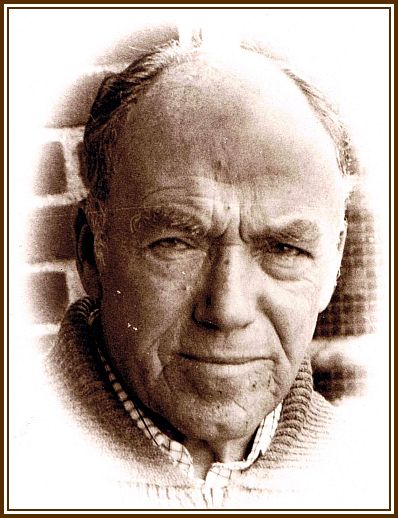
My Father, Charles Henry Jenkins (1908-1989)
Jack-of-all-Trades, Master-of-None ……. an enigma
-oOo-
TALE TWO:
THE WAR YEARS AND
THE LIBERATION OF BERGEN-BELSEN
-oOo-
THIS TALE IS DEDICATED TO THOSE PEOPLE WHO SUFFERED THROUGH THE SECOND WORLD WAR AND TO THOSE WHO LOST THEIR LIVES.
IT IS OUR DUTY TO ENSURE THAT SUCH EVENTS STOP HAPPENING.
-oOo-
PAGE ONE:
WHAT DID YOU DO IN THE WAR?
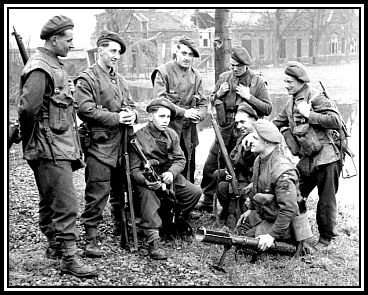 British Soldiers in Europe, 1945
British Soldiers in Europe, 1945
My father was called up (i.e. Conscription) and became a member of the British Army early in 1940. My father rarely spoke about his time in the Army other than in generalities. I do remember him talking about how cold the winter of 1944/1945 had been and how he and his compatriots could not get warm. Although I have no real idea what his duties were in the Army, I am sure that he, like the many thousands who had been called up to do their bit, did the best he could. One other thing I did know was that some of his fellow soldiers were sent to the Far East, but their ship was torpedoed en route and all were lost at sea. Fortunately for him, he evidently lacked the necessary skills required for this mission and so remained with the remainder of the Brigade and were sent off to fight in Europe instead.
-oOo-
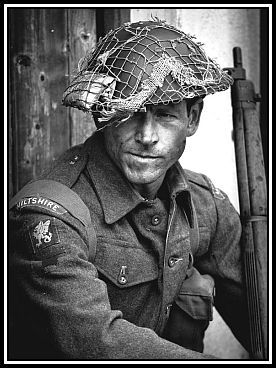 A British Soldier of the Wiltshire Regiment, an Infantry line Regiment founded in 1881
A British Soldier of the Wiltshire Regiment, an Infantry line Regiment founded in 1881
-oOo-
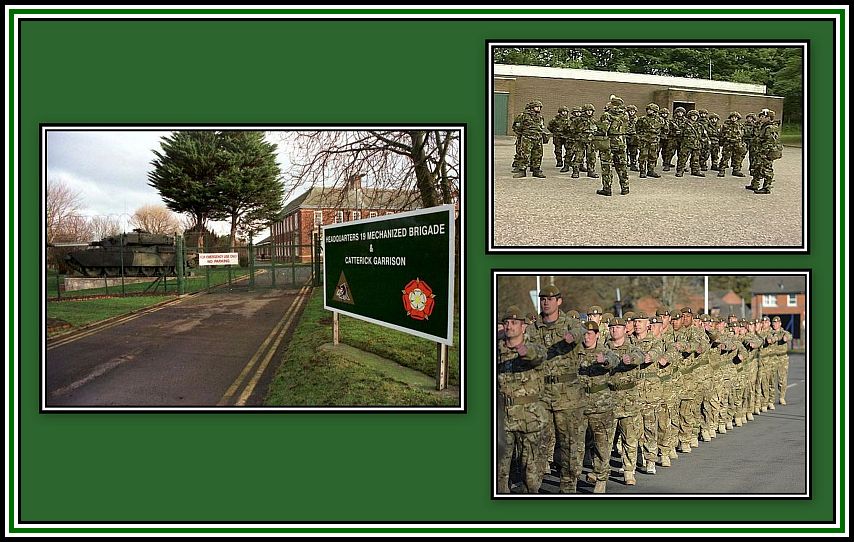
My father trained somewhere in Yorkshire, possibly at Catterwick Garrison, which today is the largest such establishments in the U.K. Occasionally got leave to return home to London, but my mother said that she saw little of him during these leaves, as he spent most of them getting drunk with his relations in South London.
Like my mother’s relations, many of my father’s siblings and half-siblings were heavy drinkers and were worthless individuals according to their father. My father’s father had little time for his relations including his children, but he loved dearly my mother since she was not a heavy drinker of alcohol preferring home life to sitting in a public house amongst fair-weather friends.
 A Drinking Party by Hogarth (1697-1764)
A Drinking Party by Hogarth (1697-1764)
Once my father’s money was gone, his family members had no time for him and moved on to other drinking companions who still had money to spend. Once my father’s was no longer welcome in South London, he would make his way home to see my mother. His stay was generally short for as soon after arriving, he had to return to where he was stationed.

My mother said that on one occasion she traveled up to Yorkshire supposedly to spend time with him during an extended leave. However, again he did not spend much time with her. He apparently took her to his local public house on one occasion where she soon realised that she was not especially welcome. She said that it was obvious that her unwillingness to go drink for drink with my father and his companions did not sit well with them. She also said that people kept asking my father where some particular woman was since her absence from the drinking party had been noticed following my mother’s arrival. My mother and father apparently had a big argument about this woman with my father claiming that there was nothing between them. My mother remained unconvinced.
-oOo-
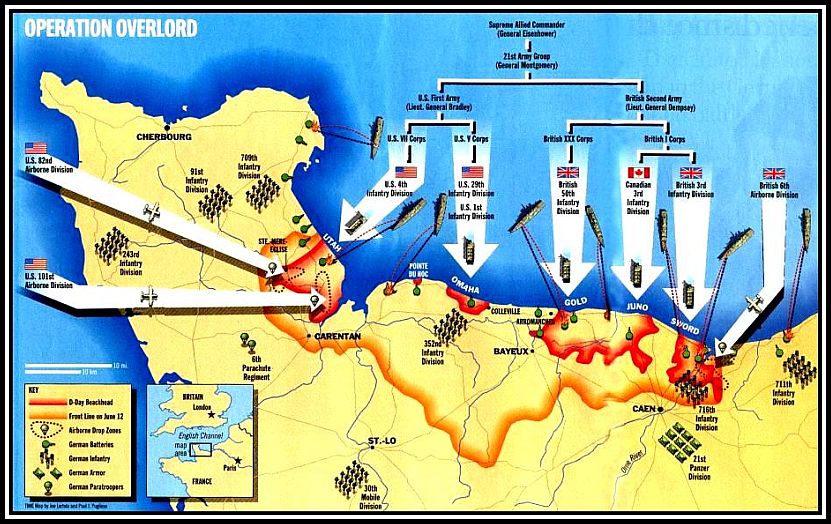
My father’s military training was put to the test when he took part in Operation Overlord and landed on the Normandy Coast along with many others from various parts of the world on D-Day, the 5th June, 1944.
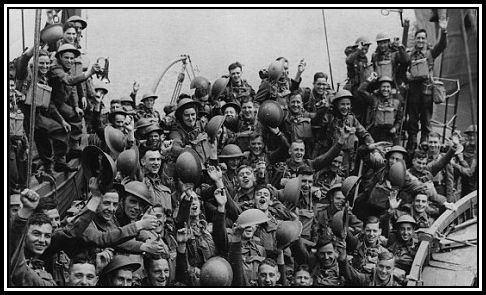 Waiting to land on D-Day
Waiting to land on D-Day
-oOo-
Together, over the weeks, they steadily moved into France, then up into Belgium and The Netherlands and finally into Northern Germany.
-oOo-
Of his movement across Europe during the war, all my father ever said to me was that it was very cold at times and that he found it difficult to feel clean during his time in Belgium, as he apparently found the water to be very hard.
For some unknown reason, I remembered his comment and I decided that I had to go and see if this was true. I suspect that being a child I did not quite grasp what he meant by it. However when I first went to Belgium, I was eager to see if the water was still hard. I had to laugh when I turned on the tap and allowed the water to run over my hands which were turning a bar of soap and found a good laver developing! Evidently the hardness of the water had been reduced in the intervening years.
My father did say that had liked very much the Hotel Metropole which was where he was billeted during his stay in Bruxelles and said that it was very elegant.
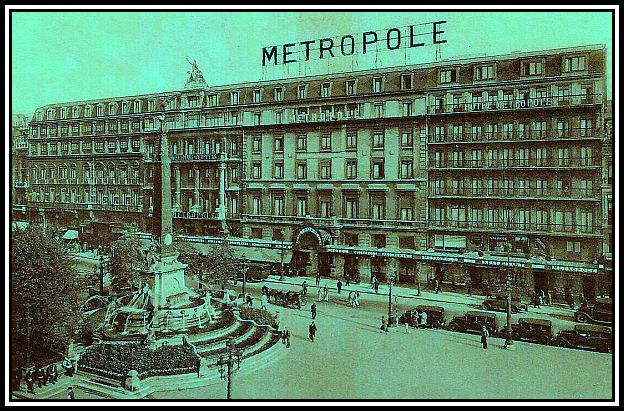 Postcard of L’Hotel Metropole in the 1920s
Postcard of L’Hotel Metropole in the 1920s
The Hotel Metropole is an elegant grand hotel in the centre of Bruxelles found on the Place de Brouckère close to the Grand Place. It was built in 1895 and owned by the Wielemans-Ceuppens family. Two of the brothers had opened a café on the site in 1890, which proved to be a great success. The business was prospered and as a result was expanded to the adjacent building, a bank, and turned into a hotel with the French architect, Alban Chambon (1847-1928), as chief designer.
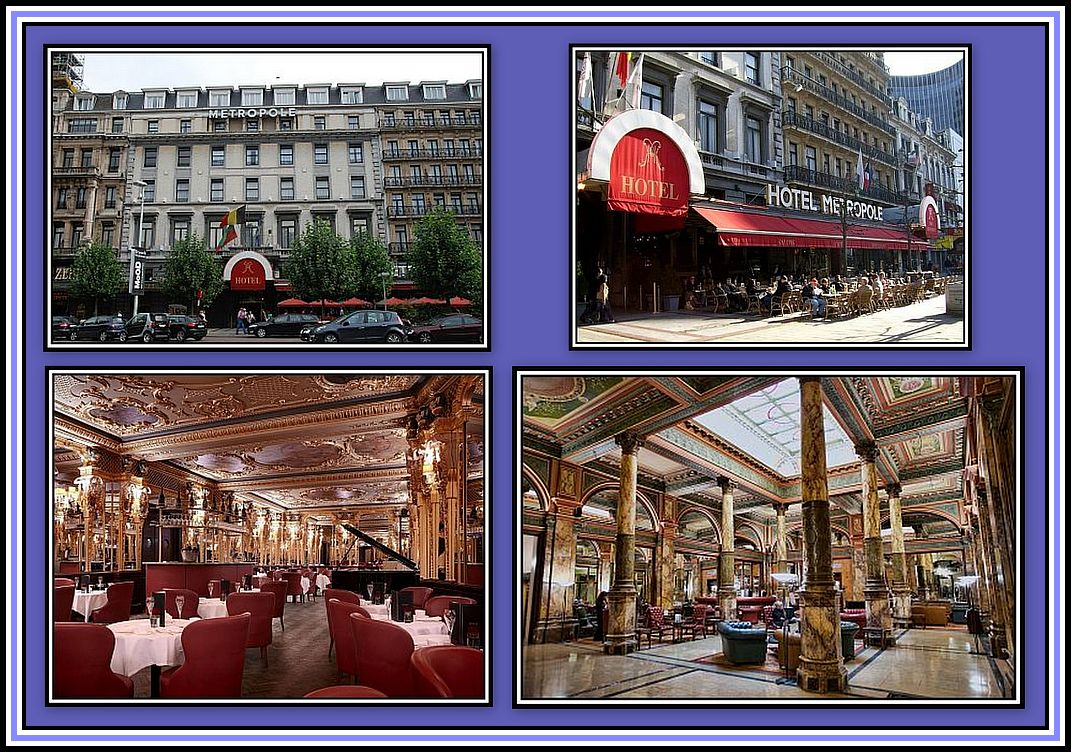
The Hotel has 262 rooms together with 22 suites and was the first hotel in Bruxelles to have electricity and central heating installed. The Hotel is extremely ornate with columns and rich furnishings. In fact, it is everything that my father said it was.
-oOo-
Once the war came to an end, he was de-mobbed (i.e. Demobilisation) and allowed to come home.
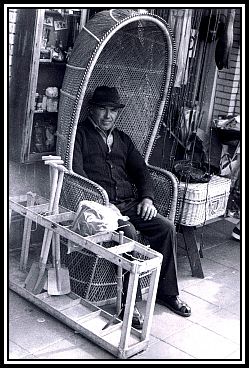
-oOo-
From reading this, my father’s military experience sounds very much like tens of thousands of others who had fought during the Second World War, and probably for much of the time, it was. Over the years, I have met many old soldiers since I now live in a military town where many such men (and a few women) have chosen to retire. Most of these soldiers enjoy telling their tales to anyone who is willing to listen and some prove to be interesting story tellers. However, some soldiers do not often talk about Their War. My father was such an old soldier and said very, very little about his military career and it was not until I was an adult that I finally learned of some of his wartime experiences, but even then I did not learn them from him, but from my mother.
-oOo-
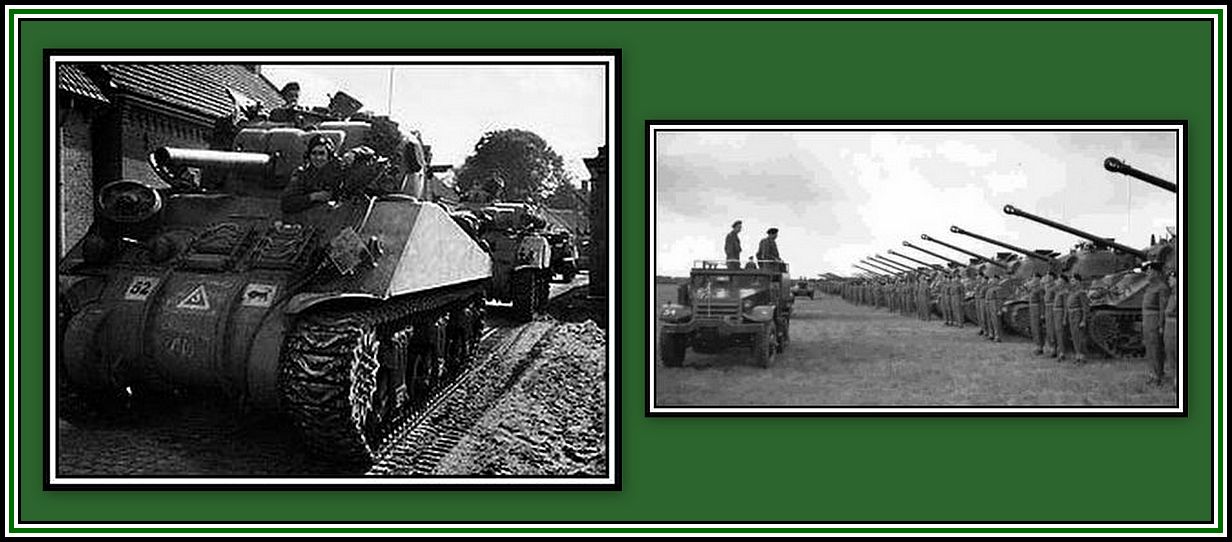 11th Armoured Division: Left: M4 Sherman Tank; Right: Parade
11th Armoured Division: Left: M4 Sherman Tank; Right: Parade
As I have said, I am sure that my father was not an especially remarkable soldier. I suspect that he did as he was ordered and did what was necessary in the hope of getting home safe and sound.
However, although perhaps not an especially remarkable soldier, he and his companions were to become somewhat different, as being part of the British 11th Armoured Division, as together with some Canadian Troops, they were to arrive on the 15th April, 1945 at the Concentration Camp at Bergen-Belsen and, upon entering, were discover the horrors within.
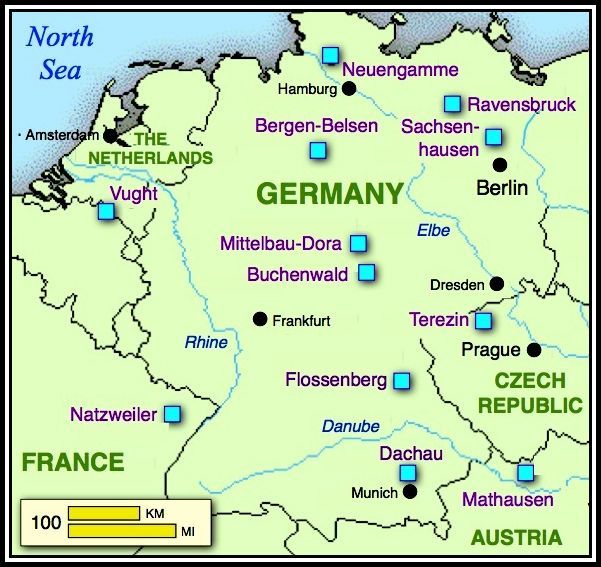 Concentration Camps in the British-French-U.S. Post-War Zones
Concentration Camps in the British-French-U.S. Post-War Zones
-oOo-
